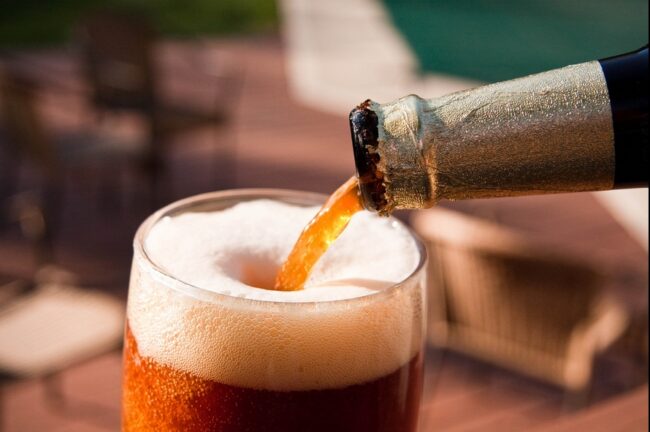Most of us are familiar with the feeling: craving a cold beer after a stressful week at work, or hot-footing it to the bar for a Pimm’s straight after the last exam of the summer. Just hearing the pop of the cork can seem enough to help you relax, but why do we enjoy alcohol so much after stress?
Alcohol is a drug – a chemical capable of altering our physiology and behaviour. Like tobacco and illegal drugs, it comes with risks (alcohol and alcoholism cause an estimated 3.2% of deaths worldwide 1), but it also comes with reward, giving us a pleasant ‘buzz’ due to the release of dopamine (known as the reward hormone). There is a well-established link between stress and alcohol use; treatment-seeking alcoholics frequently report social stressors such as family or workplace conflict as triggers of craving and relapse 2. So how does alcohol interact with the brain’s stress system?
Glucocorticoid hormones are released in response to stress and cause changes in the activation of different genes in the brain. In rats, removing the part of the brain that produces glucocorticoids reduces voluntary alcohol consumption, whereas treating with extra glucocorticoid increases it. One explanation for this is the way glucocorticoids act on the dopamine system. Mice lacking the glucocorticoid receptor in neurons that respond to dopamine have been shown to have highly reduced dopamine activity 3. This suggests that alcohol-induced dopamine release and the associated feelings of reward might be enhanced by glucocorticoid activity. Glucocorticoids have also been shown to prevent the clearance of dopamine, causing longer-lasting effects. All this means that the more stressed we feel, the stronger the dopamine response and the greater the reward we get from alcohol.
Of course, there are many other influences on how people respond to alcohol – our genes determine how we process alcohol and how addictive we find it, and cultural factors define our exposure to alcohol in the first place. By evaluating research from all of these fields, we’re beginning to understand why stress is such a strong trigger for alcohol craving. This will have important applications in healthcare, like developing treatments to control stress-induced relapse in alcoholics.
Edited by Debbie Nicol
References
- Lim, S.S. et al. A comparative risk assessment of burden of disease and injury attributable to 67 risk factors and risk factor clusters in 21 regions, 1990–2010: a systematic analysis for the Global Burden of Disease Study 2010. Lancet. 2012; 380: 2224–2260.
- Spanagel, R. et al. Stress and alcohol interactions: animal studies and clinical significance. Trends. Neurosci. 2014; 37, 4: 219-227.
- Barik, J. et al. Chronic stress triggers social aversion via glucocorticoid receptor in dopaminoceptive neurons. Science. 2013; 339: 332–335.

